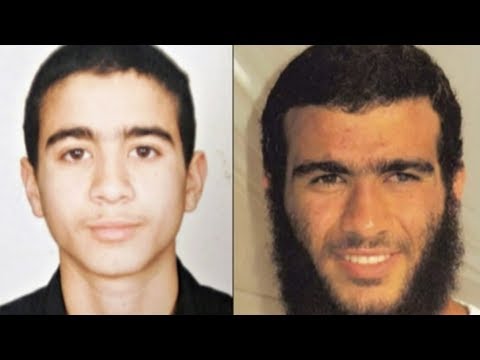
By: Spencer Ackerman
Source: The Guardian
Twelve years and nine months after he was captured at the age of 15 by US troops in Afghanistan and taken to Guantánamo Bay, Omar Khadr – now 28 – has walked out of jail.
A judge rebuffed the conservative Canadian government’s attempt to block bail for Khadr, the youngest person ever held by the US at Guantánamo, who was transferred to his home country in 2012.
“Mr Khadr, you are free to go,” said Justice Myra Bielby at a hearing in Edmonton.
Khadr was silent as Bielby rejected arguments by government lawyers that the release of Khadr – who has been portrayed as a dangerous terrorist by rightwing politicians – would damage Canada’s relations with other countries.
Yet Khadr’s legal ordeal is far from over. The government has given notice that it intends to challenge the bail order itself, while Khadr appeals his conviction in a US military tribunal for the murder of an army special forces medic, Sgt First Class Christopher Speer. Khadr will also go before a parole board on 25 June.
Khadr pleaded guilty in 2010 to war crimes related to Speer’s death, accepting an eight-year sentence atop his eight years at Guantanamo Bay, and was transferred to Canada in 2012. He has said that he only pleaded guilty because he saw no other path to leaving the US prison in Cuba.
“I intend to drive him straight home,” said Khadr’s attorney Dennis Edney, who told reporters that he had squeezed Khadr’s finger and said: “We did it.”
Under the terms of his bail, set on Tuesday by Justice June Ross, Khadr will live with Edney and his wife in Edmonton. Khadr will be subject to extensive monitoring, to include wearing an electronic bracelet and the remote surveillance of his internet usage at Edney’s home. He will not be permitted to have a laptop, cellphone or any other mobile device, and he will be subject to a curfew from 10pm to 7am.
“Whatever anyone may think of Mr Khadr, he’s now served his time,” said Nate Whitling, Khadr’s other attorney.
Khadr’s time at Guantánamo Bay has been the source of political controversy in the US, Canada and internationally.
His parents, prominent in Canadian jihadist circles in the 1990s, took Khadr to Afghanistan before the 9/11 attacks and for a time the family shared a compound with Osama bin Laden. In July 2002, US troops attacked the compound in eastern Afghanistan where Khadr was living. In the firefight, Speer was killed by a grenade and Khadr grievously wounded, losing the sight in his left eye – an injury which earned him the nickname “Buckshot Bob” from US interrogators in Bagram airfield.
After his October 2002 arrival at Guantánamo, Khadr has alleged that he was subject to a variety of abuses, including stress positions, sleep deprivation and being used as a “human mop” after guards shackled him so long that he urinated on himself.
The Canadian government drew criticism over the years for declining to seek Khadr’s repatriation from its close American ally. A video released in 2008 showed Canadian intelligence officials interrogating the youth, as a crying Khadr begged them for help, even moaning “kill me” after they left him alone.
Asked in 2010 at Guantánamo by a New York psychologist what he missed the most about his life before captivity, Khadr replied: “Being loved.”
Canadian politicians have argued that Khadr remains dangerous, but in hearings this week the Canadian government was forced to conceded the opposite: in April, he was transferred to a minimum security facility and was considered a model prisoner. The government’s attorney, Bruce Hughson, argued that his “abrupt” release on bail risked jeopardizing Khadr’s progress.
Laura Pitter, senior national security counsel at Human Rights Watch, said Canada has a duty to rehabilitate Khadr. “When Khadr was repatriated, instead of providing him with the rehabilitation he deserved as a former child soldier, Canada threw him in prison,” Pitter said. “Now, Canada has a chance to try to make things right and provide Khadr with the support he needs to reintegrate into Canadian society.”
At Guantánamo and since his transfer to Canadian prison, Khadr has been under a media blackout. Edney, after the bail hearing, told reporters that he expects to hold a press conference on Friday so Khadr can address the public for the first time.
“I look forward to Omar Khadr letting the Canadian public see who he really is, to challenge the lies of this government, who have not allowed him to be seen or to speak to you media,” said Edney, who called Prime Minister Stephen Harper “a bigot” against Muslims.



